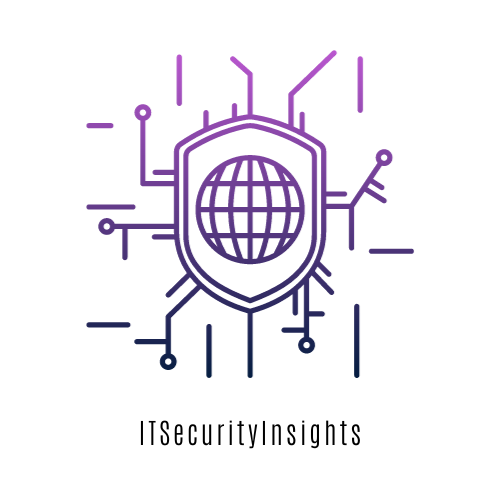In today’s digital economy, data is the new oil—but without proper protection, it quickly becomes a legal and reputational minefield. From WhatsApp chats to payment details, Nigerian businesses are collecting more data than ever. But here’s the question:
Are you protecting it—or putting your customers at risk of exposure and lawsuits?
Let’s break down what the Nigerian Data Protection laws mean, who they affect, and how your business can stay compliant—even on a small budget.
What Is the Nigeria Data Protection Regulation (NDPR)?
The Nigeria Data Protection Regulation (NDPR) was introduced in 25th January 2019 pursuant to section 6 (a) and (c) of the National Information Technology Development Agency Act 2007 (the ‘NITDA Act’) by the National Information Technology Development Agency (NITDA) to safeguard personal data in Nigeria.
It is Nigeria’s primary data protection law, modeled after the EU’s GDPR, and aims to regulate how businesses collect, process, store, and share personal data.
What Counts as “Personal Data”?
Any information that can be used to identify an individual—directly or indirectly.
This includes:
- Full name
- Email address
- Phone number
- Home address
- IP address
- Bank account or card details
- Biometric or health information
- Photos, CCTV recordings, etc.
Who Must Comply?
Every organization, business, school, church, or government agency in Nigeria that collects or processes personal data of Nigerians—whether online or offline.
You must comply if:
- You run a website with user registration.
- You collect customer data via forms or apps.
- You process salary or employee data.
You store customer details, biometrics, or phone numbers.


Penalties for Violating the NDPR
Offense | Penalty |
For businesses with less than 10,000 data subjects | Up to ₦2 million or 1% of annual gross revenue |
For businesses with greater than 10,000 data subjects | Up to ₦10 million or 2% of annual gross revenue |
Real Example: In 2020, NITDA fined a leading digital bank ₦5 million for mishandling user data. They sent marketing emails without customer consent.
Core Principles of Data Protection You Must Follow
- Transparency – Inform users of what data you’re collecting and why.
- Consent – Get clear permission before collecting personal data.
- Purpose Limitation – Only collect data that is necessary.
- Data Minimization – Don’t ask for what you don’t need.
- Storage Limitation – Don’t keep data longer than necessary.
- Security – Use encryption, firewalls, access control to protect data.
How to Make Your Business NDPR-Compliant
- Appoint a Data Protection Officer (DPO)
- Someone who oversees how data is collected, used, and secured.
- Can be internal or a third-party consultant.
- Conduct a Data Audit
- What data do you collect?
- Where is it stored?
- Who has access to it?
- Do you share it with any third parties?
- Update Privacy Policies
- Create a clear and visible privacy policy on your website.
- Must include:
- What data you collect.
- Why you collect it.
- How long you keep it.
- Contact info for data complaints.
- Obtain Valid Consent
- Use opt-in checkboxes (not pre-checked).
- Avoid forcing users to accept terms to use your service.
- Allow users to withdraw consent anytime.
- Train Your Team
- Teach staff to avoid phishing, protect files, and understand privacy.
- Ensure HR, Marketing, and Tech teams understand data roles.
- Protect the Data
- Use secure passwords, encryption, firewalls.
- Restrict data access to only necessary employees.
- Regularly back up sensitive data.
- Report Breaches Within 72 Hours
- If you suffer a hack or data leak, according to the NDPR, a data controller is obligated to notify NITDA within 72 hours of becoming aware of a breach, if the breach is likely to result in a risk to the rights and freedoms of individuals.
For Online Businesses & Startups
- Use HTTPS on your website.
- Don’t collect more than you need in your forms.
- Don’t store card details yourself—use secure gateways (Paystack, Flutterwave).
- Let users request data deletion (“right to be forgotten”).
5 Common NDPR Mistakes by Nigerian Businesses
- Using WhatsApp to collect customer details (without consent).
- Storing employee data on Google Sheets without access control.
- Sharing customer lists with third parties for marketing.
- Using public Wi-Fi to manage client data without VPN.
- Not having a visible privacy policy on websites or apps.
Key Documents You Should Have
- Privacy Policy
- Data Protection Policy
- Staff Confidentiality Agreement
- Consent Forms
- Data Breach Response Plan
Final Word: Data Protection Is Trust Protection
It’s not just about avoiding fines—it’s about earning your customers’ trust.
In a digital-first Nigeria, your reputation is everything. If users feel their data is safe with you, they’ll come back. If you betray that trust, you lose more than a sale—you lose your brand.
Protect data. Build trust. Stay compliant.


